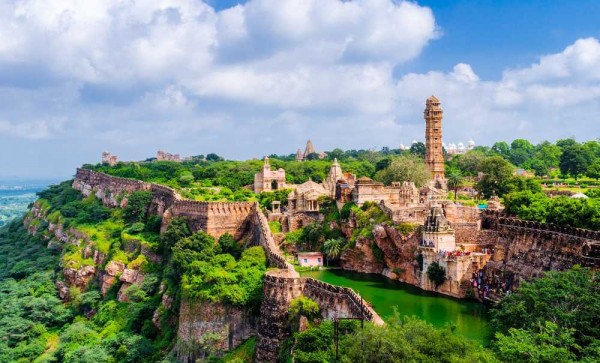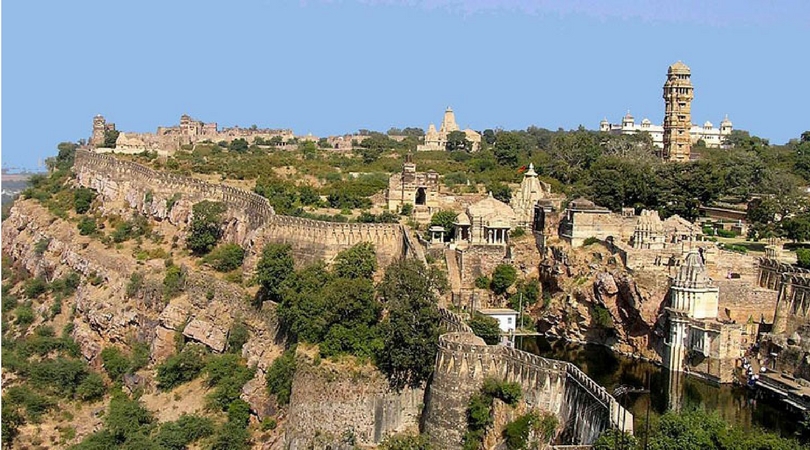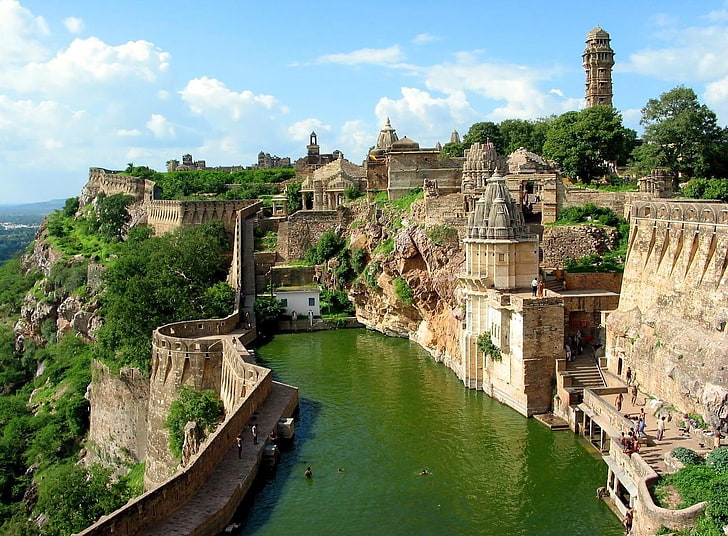


Legends of Rajputana valor, dignity, and devotion are enduring in Chittorgarh. Every youngster and adult in the city is familiar with the heroic and selfless tales that the Rajasthani minstrels perform. The Chittorgarh Fort, which occupies 700 acres and is perched atop a hill 180 meters high, is the city's most impressive building and the source of its namesake.
Chittorgarh is a significant historic location in Rajasthan and is situated in the state's southeast. It is home to numerous historic structures, palaces, and forts that attest to the region's regal past. Mewar, the empire's capital, is well-known for the legendary Ala-ud-din Khilji fight. Visit Chittorgarh if you want to learn more about the history of the region. Most of you would believe that the location is dull. This isn't the case, though. In addition to all the historical sites, Chittorgarh, Rajasthan, offers a wide variety of additional activities.
The history of Chittorgarh Fort has been turbulent. Three ferocious attempts have been made against this Rajput stronghold during its lifetime. The first occurred in 1303, when Queen Padmini's love interest, Sultan of Delhi Ala-ud-din Khilji, led an expedition to kidnap her. In 1533, and over two centuries later, Gujarati Sultan Bahadur Shah was the one who carried out extensive havoc. The fort was assaulted and taken over by the Mughal Emperor Akbar in 1568, nearly four decades later. The fort was finally turned back over to the Rajputs in 1616, during the reign of Mughal Emperor Jahangir.

By Air: The nearest airport to Chittorgarh is Maharana Pratap Airport in Udaipur, which is around 100 km away. From Udaipur, you can take a taxi or bus to Chittorgarh.
By Train: Chittorgarh has its own railway station, Chittorgarh Railway Station, which is well connected to major cities in India.
By Bus: There are several state-run and private buses that operate between Chittorgarh and other cities in Rajasthan, as well as cities in neighboring states.
The climate in Chittorgarh is generally hot and dry, with temperatures ranging from around 20°C (68°F) to 40°C (104°F) during the year. The best time to visit Chittorgarh would be during the winter months from October to March when the weather is pleasant with cool breeze and temperature averaging between 15°C to 25°C. The monsoon season, from July to September, can also be a good time to visit as the weather is cooler and the landscape is greener. However, it can be quite humid during this time.
A minimum of 2-3 days would be enough to explore the Chittorgarh Fort, Vijay Stambh, Kirti Stambh, Rana Kumbha Palace, and the Padmini Palace. If you are interested in visiting other nearby places like Udaipur and Kumbhalgarh, you may consider staying for a longer duration, say 4-5 days.

1. Chittorgarh Fort: This UNESCO World Heritage Site is the main attraction of the city and is known for its impressive architecture and historical significance. The fort is home to several palaces, temples, and towers, including the Vijay Stambh and Kirti Stambh.
2. Rana Kumbha Palace: This palace is located within the Chittorgarh Fort and is known for its impressive architecture and historical significance. It is believed to be the birthplace of Maharana Pratap, a famous Rajput king.
3. Padmini Palace: This palace is also located within the Chittorgarh Fort and is known for its beautiful architecture and historical significance. It is believed to be the place where Padmini, the queen of Chittorgarh, lived.
4. Meera Temple: This temple is dedicated to the famous Rajput poet and saint, Meerabai. It is known for its beautiful architecture and historical significance.
5. Kumbha Shyam Temple: This temple is located in the Kumbhalgarh Fort and is known for its beautiful architecture and historical significance. It is believed to be the place where Rana Kumbha, a famous Rajput king, worshiped.
6. Kirti Stambh: This tower is located in the Chittorgarh Fort and is known for its historical significance. It is believed to have been built by a Jain merchant.
7. Kalika Mata Temple: This temple is located in the Chittorgarh Fort and is known for its beautiful architecture and historical significance. It is believed to have been built in the 8th century.
8. Gaumukh Reservoir: This reservoir is located in the Chittorgarh Fort and is known for its beautiful architecture and historical significance.
Chittorgarh offers a variety of accommodation options to suit different budgets and preferences. Here are a few recommendations:
1. Hotel Padmini Palace: This hotel is located within the Chittorgarh Fort and offers beautiful views of the fort. The hotel is known for its traditional Rajasthani architecture and hospitality.
2. Hotel Hilltop Palace: This hotel is located on a hilltop and offers beautiful views of the surrounding area. The hotel is known for its traditional Rajasthani architecture and hospitality.
3. Hotel Aranyawas: This hotel is located in a peaceful area and offers beautiful views of the surrounding area. The hotel is known for its traditional Rajasthani architecture and hospitality.
4. Hotel Khimsar Fort: This hotel is located in a peaceful area and offers beautiful views of the surrounding area. The hotel is known for its traditional Rajasthani architecture and hospitality.
These are some of the most popular and well-rated hotels in Chittorgarh, and they offer a good combination of traditional Rajasthani architecture, hospitality and great views of the area. Other options include Guesthouse, homestays, resorts, and budget hotels as well.